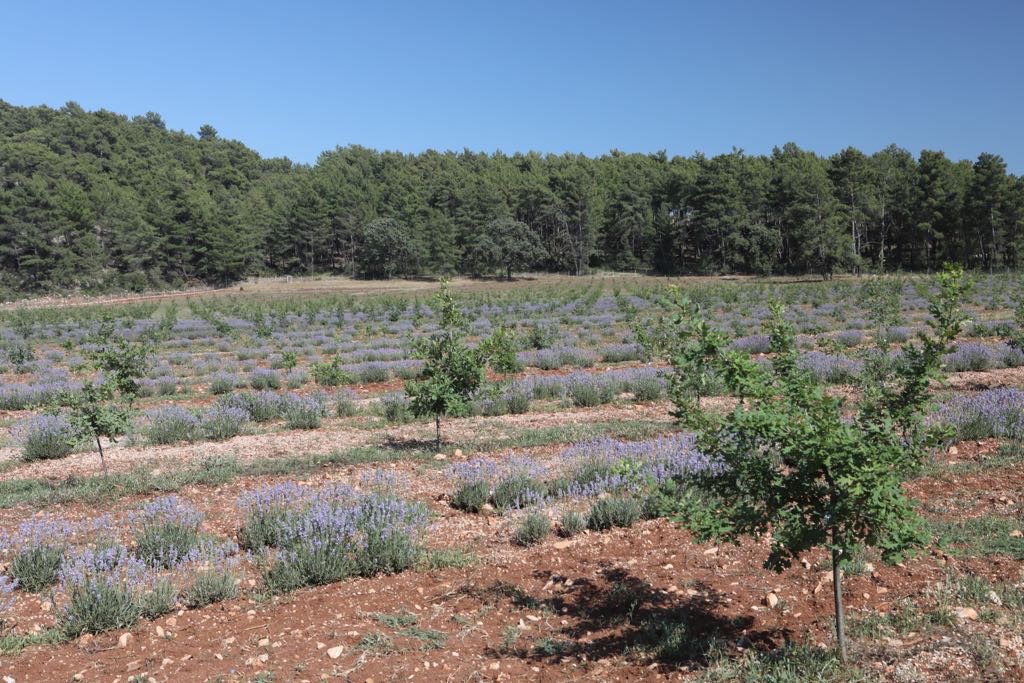- With the participation of the Centre of Forest Science and Technology of Catalonia (CTFC) in Solsona, the IDForest in Palencia and research centres and companies from Croatia, Turkey, Slovenia, Spain, Italy and France
- The initiative aims to revitalise the economy of rural areas by designing new agroforestry models that incorporate precision agriculture techniques

Agrotecnio is leading the ‘COSMOS’ project, which seeks to revalue the Mediterranean rural environment by defining new agroforestry models that combine truffle production with medicinal and aromatic plants, fruit trees, vines and the cultivation of other pollen-producing species for the production of honey.
This is a European project involving a total of 8 research centers and 2 private companies from six European countries: the Agrotechnology Research Centre Foundation – Agrotecnio, the Centre for Forest Science and Technology of Catalonia (CTFC) and IDForest Applied Forest Biotechnology from Spain; the Ruder Boskovic Institute and the Croatian Forest Reasearch Institute from Croatia; the CuKurova University and the Demirsoy Agriculture Company from Turkey; the University of Siena in Italy; the Centre National de la Reserche Scientifique from France; and the Slovenian Foresty Institute from Slovenia.
The initiative aims to design new agroforestry models to revitalize and diversify the economy of Mediterranean rural areas and thus combat depopulation. It also seeks to test management techniques that improve soil health, reduce water consumption, increase productivity and produce natural and sustainable food that is free of phytosanitary products.
To achieve these objectives, a dozen experimental fields and six living labs will be set up in these countries where truffle production will be tested in combination with other crops, trees and fauna (mainly bees), applying precision agriculture techniques. COSMOS aims to demonstrate that the rural environment can be much more resilient and productive if truffle-inoculated species are combined with various plant species that benefit from this crop, such as aromatic, medicinal, edible or pollinating plants.
The aim is to test new agroforestry practices and establish efficient, sustainable and climate-resilient production models. To monitor the conditions of crops, soil and water, precision agriculture techniques will be used, such as sensorization of environmental variables, drones and remote sensing.
The project also aims to promote market access and value chains for these products (basically truffles, wine, medicinal and aromatic plants, fruits and species that favour the production of pollen and honey). It will therefore include the development of certification schemes, promotion and brand management and the development of new business models, including emerging activities such as truffle tourism, gastronomic tourism or health tourism, to increase income generation in these regions and improve agricultural productivity.
The project will involve several actors, researchers from the 10 research centers and companies, farmers, representatives of the public and private sectors, and social groups such as cooperatives or women’s associations. In fact, one of the cross-cutting objectives of the initiative is to incorporate the gender perspective and promote the empowerment of women in the forestry sector.
The COSMOS project will start in 2025 and has a planned duration of 3 years. It is funded by the PRIMA initiative (Partnership for Research and Innovation in the Mediterranean Area) and has a total approved budget of €1,667,530.

